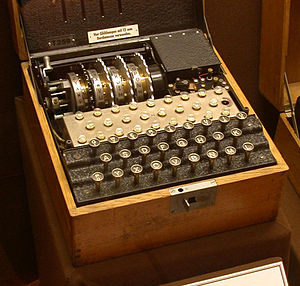Introducing a second regular author on the Vridar blog, Tim Widowfield.
Will let his posts speak for themselves.
I’m looking forward to keeping up with his series on Wrede and the Messianic Secret.
Musings on biblical studies, politics, religion, ethics, human nature, tidbits from science

Introducing a second regular author on the Vridar blog, Tim Widowfield.
Will let his posts speak for themselves.
I’m looking forward to keeping up with his series on Wrede and the Messianic Secret.


A handful of works in the field of Biblical studies have the reputation of revolutionizing the field. Later scholars refer to them as ground-breaking, game-changing, or seminal. These works arrive on the scene and immediately change the nature of the debate, often providing an entirely new thought framework. More than that, they supply scholars with fuel for generations to come as the original work is reinterpreted, recast, and re-imagined.
Some examples come to mind immediately: Wellhausen′s Prolegomena, D.F. Strauss′s The Life of Jesus Critically Examined, and Bultmann′s History of the Synoptic Tradition. These important works in the tradition of historical-critical scholarship have much in common besides being seminal works. First, they often unwittingly create a cottage industry for apologetic rebuttals. Dreadful little pamphlets and books hit the street almost immediately that attempt to debunk the new perspectives. These rebuttals, written by people who clearly aren’t up to the task, appear like mayflies: they burst forth, have their day in the sun, and then are entirely forgotten.
Among the common traits these ground-breaking classics share, we would have to include the way in which they become known to modern scholars and students. They are not so much read as “absorbed” through the membrane of other scholars. That is, students read what other scholars think the original work said, or they come across a synopsis of the work, and this serves a stand-in for actually reading it and understanding it on its own merits. The original tract is reduced to footnote fodder with writers pretending to have read the work, when really all they’ve done is skimmed a summary, a passing reference, or an interpretation.
You’d have to look long and hard to find a better example of an unread classic than William Wrede’s The Messianic Secret (1901). Unavailable in English until 1971, Wrede’s book was at first largely ignored in the US and UK (see J.D.G Dunn’s “The Messianic Secret in Mark,” (warning: link leads to PDF) Tyndale Bulletin 21 (1970) 92-117). Apparently, by the time the English-speaking world took notice of it, so much had been written on the subject that scholars began to lose sight of the original thesis, while others simply misunderstood or deliberately misrepresented Wrede’s very description of the problem. Continue reading “Reading Wrede Again for the First Time (1)”